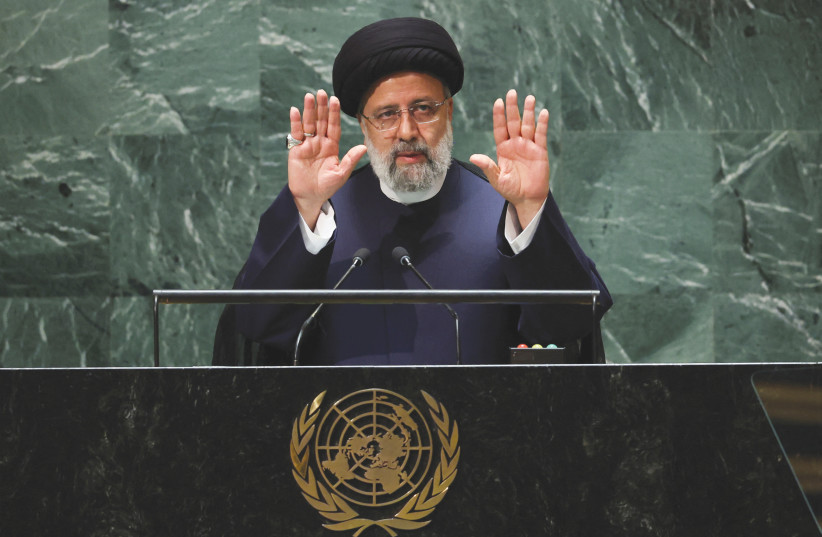Iran’s multi-pronged ‘diplomatic’ offensive after Damascus strike
Iran is engaged in the first part of its response to an airstrike this week in Damascus, which Iran has blamed on Israel. It is not only slamming Israel, it is also blaming the United States. This shows how Iran is seeking to link the incident that killed several key Islamic Revolutionary Guard Corps members to a wider regional struggle in which Iran is engaged in trying to reduce US influence in the region.
Iranian Foreign Minister Hossein Amir Abdollahian has highlighted the attack on the consulate compound in Damascus and also sought to spotlight what Iran claims is the “American administration’s responsibility.”
Iran buried members of the IRGC that were killed in Damascus on Monday. This included Quds Force commander for operations in Syria and Lebanon Brigadier General Mohammad Reza Zahedi, his deputy, and five of their accompanying officers, according to Iran’s pro-government Fars News.
Meanwhile, Iranian president Ibrahim Raisi phoned Syrian regime leader Bashar al-Assad and “lashed out at the West for continuing to provide financial and military support to Israel amid the Gaza war, and stressed the Zionist regime does not adhere to any of the humanitarian and international principles,” according to a second report at Fars.
“There is no doubt that Zionists and their supporters are responsible,” the Iranian said. “The Syrian president stressed that the Zionist regime seeks to escape from the quagmire it is caught in by the Palestinian resistance in the besieged enclave and emphasized the need to support the axis of resistance,” the report noted.

Meanwhile, Iran is seeking to have Israel condemned by the United Nations. In a statement to the UN, the Iranian envoy said “Yesterday, we urgently notified the Security Council members of yet another flagrant violation of international law committed by the Israeli regime within Syria territory.
As reflected in our letter, on 1st April 2024, our diplomatic premises in Damascus came under terrorist attacks carried out by the Israeli regime. Seven missile airstrikes from the occupied Golan Heights, specifically and intentionally targeted the diplomatic premises of Iran, including the consular section building and the ambassador’s residence.” The Iranian envoy said that “the final and accurate death toll remains uncertain as the entire diplomatic premise has been destroyed, with individuals trapped under the rubble.”
Iran warned UN Security Council
Iran wants the United Nations Security Council to do more in the wake of the airstrike. Iran has also sought to get Russia’s support and also to mobilize condemnations in the Gulf. Gulf countries have often reconciled or normalized with the Syrian regime in the last two years.
This means that they have a vested interest in condemning an attack on a diplomatic post in Damascus. The fact is the building next to the Iranian consulate was not a purely diplomatic site, as the IRGC used it. However, from the standpoint of the Gulf states, it is worthwhile to appear to put out statements condemning the strike. Iran and Saudi Arabia also reconciled last year, meaning Riyadh has an interest in appearing to condemn the attack.
Iran is trying to mobilize this diplomatic support first before lashing out with its promised “retaliation.” In the past, Iran has attacked Erbil in Iraq when it wanted to “retaliate.”
In 2020, it fired ballistic missiles targeting a base in Iraq in retaliation for the US killing of IRGC Quds Force head Qasem Soleimani. Iran has already mobilized its militias and proxies in various countries since October 7 to attack Israel and attack US forces in Iraq and Syria.
In addition, the Iranian-backed Kataib Hezbollah targeted US forces in Jordan in January. As such, the Iranian claim of “retaliating” is a bit of a stretch because it is Iran that has been attacking throughout the region.
However, Iran wants the sympathy of other countries, and it wants an official record of this attack in Damascus so it can claim a right to respond. Iran also wants to leverage this with Russia, China, and other states.





Comments are closed.